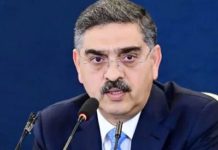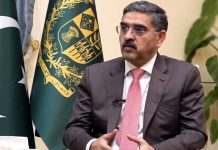
Both sides held the last round of talks on Thursday in which the remaining issues of the fiscal deficit and primary balance were finalised, a private TV channel reported. It is expected that the loan size will be equal to about 225% of Pakistan’s quota or $6.5 billion. The country already owes $5.8 billion to the IMF on account of previous loans.
During their discussions on Wednesday, the two sides worked out a financing gap of around $11 billion for the next fiscal year, 2019-20. Under the understanding, the government will start withdrawing exemptions offered in various taxes amounting to around Rs 350 billion in the budget for 2019-20. The two sides also agreed that Pakistan will increase costs of electricity and gas for the consumers in the next budget.
It has been agreed that the power sector regulator, the National Electric Power Regulatory Authority (NEPRA), will be made autonomous and the government interference to take popular decisions will be minimised.
An official of the Finance Ministry confirmed that the financing gap for the next fiscal year had been projected at $10-$11 billion. He added that the demand of the IMF for an increase in policy rate by 100-200 basis points has also been agreed upon. Various measures aimed to build up foreign exchange reserves too have been agreed upon.
The official added that the IMF team pitched the GDP growth and current account deficit (CAD) on the lower side during the negotiations, however a middle path was agreed upon. The IMF was earlier stressing that CAD should be in the range of $4-$6bn, said the official. However, it was agreed that the deficit would be $8bn for the next fiscal year under the IMF programme.
The IMF team asked the government to take additional tax measures in the upcoming budget to make massive fiscal adjustments for moving towards surplus primary balance. The budget-making process will start only after the staff-level agreement is finalised.











